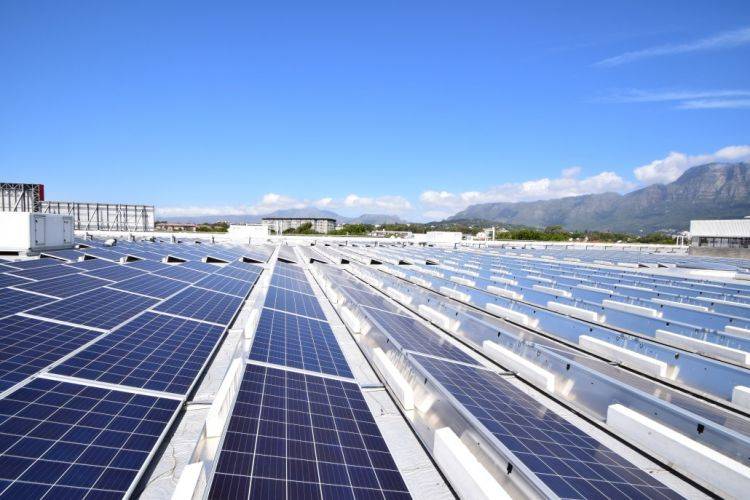S.A.’s SOLA Group Secures USD 26 Mn To Construct 40 M.W. Solar P.V. Facilities In Southern Africa

South African solar project developer SOLA Group has signed a reported USD 26 Mn deal to build 40MW commercial and industrial solar P.V. facilities across Southern Africa. The fund will enable the renewable energy projects to be built without capital expenditure by electricity off-takers.
Cities such as Durban, Cape Town, Port Elizabeth, Johannesburg, Polokwane, Nelspruit, and Ekurhuleni will benefit from the project. The facilities are being made possible by a coalition of efforts from the SOLA Group, African Infrastructure Investment Managers, and Nedbank Energy Finance. They have all joined forces to provide affordable solar P.V. solutions for business in great need of power security.
In the last few years, the reduced costs of embedded electricity generation such as solar P.V. have become an interruption to the conventional power production model.
Agreements such as this help large commercial and industrial companies gain access to flexible procurement of electricity. This, in turn, allows them to consume the cheapest power available at a given time while reducing their carbon footprints.
Earlier in the year, the former Energy Minister, Jeff Radebe gave the green light for the National Energy Regulator of South Africa to license small-scale embedded generation projects from 1 M.W. to 10 M.W. in size. This was before the Integrated Resources Plan (IRP) became finalized. It is believed that the erection of these new solar facilities will likely create an additional 880 jobs in the coming years.
According to Chris Haw, Chairperson of the SOLA Group, the partnership unites a trio of highly experienced entities whose combined expertise offer consumer clean energy solutions at the time the country is in dire need of it. AIIM Investment Director, Mitech Pema, said that investing in clean energy infrastructure is a pivotal aspect of supporting the African economy.
“Funding these renewable energy projects will enable industrial facilities to access secure and cheaper power, freeing up CAPEX for investment into their core business activities. Allowing small-scale embedded generation of electricity is a key lever for the government to enable flexible electricity generation, and ultimately the transition to a low-carbon economy,” said Duncan Abel, Principal for Energy Finance at Nedbank CIB.
Featured Image: PV Tech